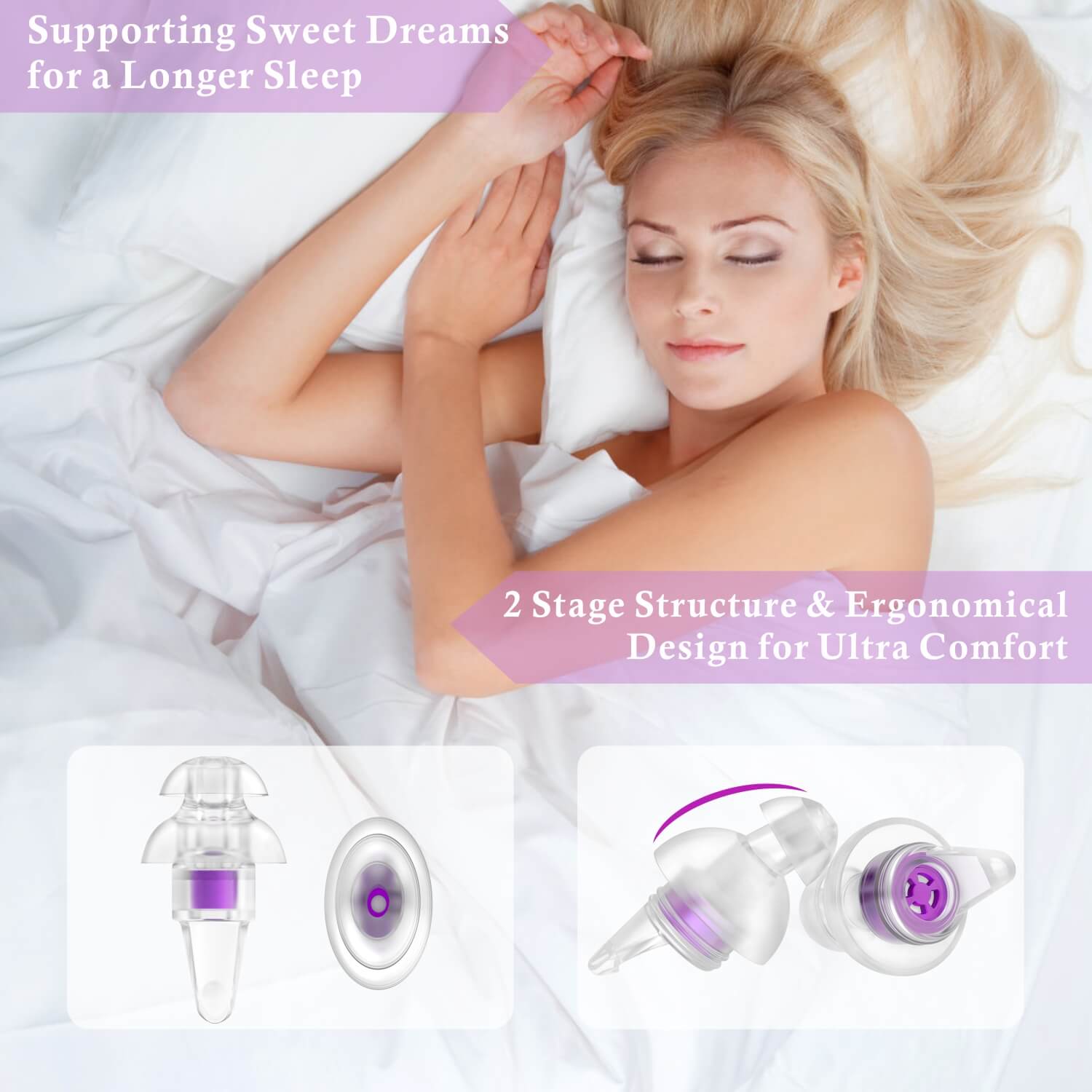Getting a good night's sleep is essential for our overall well-being. However, external noises can often disrupt our sleep and leave us feeling tired and groggy the next day. This is where sleeping ear plugs come in handy. They can help block out unwanted sounds and create a peaceful environment for a restful sleep. But with so many options available, how do you choose the right sleeping ear plugs for your individual needs? In this article, we will explore the factors to consider when selecting the perfect pair of ear plugs for a good night's sleep.
Understanding Your Individual Needs
Before diving into the world of sleeping ear plugs, it's important to understand your individual needs. Consider the following factors:
1. Noise Sensitivity
Some individuals are more sensitive to noise than others. If you find yourself easily disturbed by even the slightest sounds, you may require ear plugs with a higher noise reduction rating (NRR). On the other hand, if you are a light sleeper but not particularly sensitive to noise, ear plugs with a lower NRR may suffice.
2. Sleeping Position
Your sleeping position can also influence the type of ear plugs that will work best for you. If you sleep on your side, you may prefer softer and more flexible ear plugs that won't cause discomfort when pressed against your pillow. If you sleep on your back, you have more flexibility in choosing the shape and size of the ear plugs.
3. Comfort and Fit
Comfort is key when it comes to sleeping ear plugs. Look for ear plugs made from soft and hypoallergenic materials that won't irritate your ears. Additionally, consider the size and shape of the ear plugs. Some people find foam ear plugs to be the most comfortable, while others prefer silicone or wax-based options.
4. Durability and Reusability
Consider the durability and reusability of the ear plugs. Some ear plugs are designed for single-use, while others can be washed and reused multiple times. If you are looking for a more sustainable option, choose ear plugs that can be cleaned and reused.
Exploring Different Types of Sleeping Ear Plugs
Now that you have a better understanding of your individual needs, let's explore the different types of sleeping ear plugs available:
1. Foam Ear Plugs
Foam ear plugs are one of the most popular options for sleeping. They are affordable, easy to use, and provide excellent noise reduction. Foam ear plugs expand to fit the shape of your ear canal, creating a snug and comfortable fit. However, they may not be suitable for individuals with smaller ear canals or those who find them uncomfortable to wear for long periods.
2. Silicone Ear Plugs
Silicone ear plugs are another common choice for sleeping. They are soft, flexible, and reusable. Silicone ear plugs can be molded to fit the shape of your ear, providing a customized and comfortable fit. They are also more durable than foam ear plugs and can withstand repeated use and cleaning.
3. Wax Ear Plugs
Wax ear plugs are a less common but effective option for sleeping. They are made from a blend of wax and cotton fibers, which allows them to mold to the shape of your ear canal. Wax ear plugs provide a tight seal and excellent noise reduction. However, they can be a bit messy to use and may not be suitable for individuals with sensitive skin.
4. Custom Molded Ear Plugs
If you are looking for a personalized and long-lasting solution, custom molded ear plugs may be the right choice for you. These ear plugs are made from impressions of your ears, ensuring a perfect fit. Custom molded ear plugs are typically more expensive than other options but offer superior comfort and noise reduction.
Remember, finding the right sleeping ear plugs may require some trial and error. What works for one person may not work for another. It's important to experiment with different types and brands to find the perfect fit for your individual needs.
Conclusion
Choosing the right sleeping ear plugs is essential for a peaceful and uninterrupted sleep. By understanding your individual needs, considering factors such as noise sensitivity, sleeping position, comfort and fit, and durability, you can make an informed decision. Whether you opt for foam, silicone, wax, or custom molded ear plugs, finding the perfect pair will help you create a serene sleep environment. So, say goodbye to sleepless nights and hello to a restful slumber with the right sleeping ear plugs for your individual needs.
